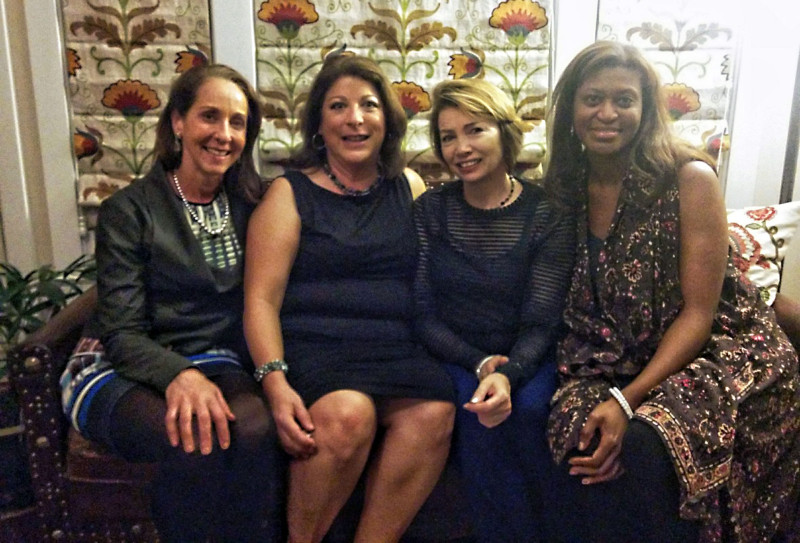“I wanted to put my money on Ellen and her case, but it’s really hard to know what goes on in a jury, and in a trial,” said Maier. “I was really disappointed. But I can’t say I was 100 percent surprised.”
Despite Silicon Valley’s cultural mindset of providing opportunity to all, “it’s really not a meritocracy,” Maier said. “And I think this really exposed that biases … exist.”
Maier questioned the pervasive stereotype of the Silicon Valley entrepreneur “being a 20-something guy in a hoodie.” And even though users of social media are predominantly women, when Twitter went public, “they didn’t think there were any qualified women to sit on their board? This is where we get angry,” she said.
Founder and CEO Anna Zornosa, who created a Burlingame apparel company called Ruby Ribbon, said she thought Pao’s gender discrimination suit “really drew attention to the fact that there aren’t more women general partners in venture capital. But that’s the very, very top of the pyramid. And the top of the pyramid is always going to be slower to change.”
The number of women partners at venture capital firms has actually taken a nose dive in recent years, going from 10 percent in 1999 to six percent in 2014, according to a Babson College report released last September.
Firms with women partners are three times more likely to invest in companies led by women CEOs, the report found. But from 2011-2013, companies with women at the helm only received three percent of total venture capital dollars invested.
Nevertheless, the entrepreneurs at Maier’s party said women operating in Silicon Valley’s business environment have developed a strategy for getting ahead: building up networks of women investors and entrepreneurs.
“Anna and I have been entrepreneurs … for 20-something years,” Maier explained. “Things haven’t changed a whole lot, except that now I think there’s more support for these women. I mean, we all mentor younger women. And we’re trying to get more women to invest as angels into these companies, because a lot of women have the resources to invest, and their money ought to speak to this issue.”
Lisa Pinckney said she viewed the case as an outsider, since she’s new to California and has never worked in tech. “I just always thought that in this part of the country, there would be a lot more diversity and a lot more opportunities for women. So until this case came to the forefront, I had no idea what was happening in the industry,” she said.
A chef who founded a successful company called Mattie’s Pies – “We were the official pecan pie of the 1996 Olympics, that’s my claim to fame”– Pinckney said she was all too familiar with gender bias in the business world.
“I had to kiss a lot of male behind to get things done,” she said. “I was the first woman to export food in the U.S., and therefore I had to smoke a lot of cigars with a lot of guys to get my food shipped to Europe.”
Pinckney said her experience has inspired her to lend support to female entrepreneurs, because she doesn’t want others to experience the same kind of pushback she encountered. “When I walk into a bank, if I don’t have my husband with me, I may not get the loan,” she said. “And that’s just ridiculous.”

